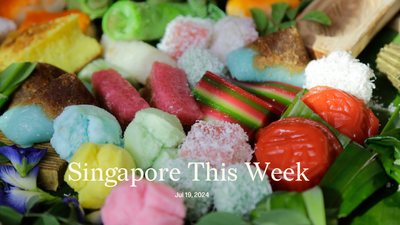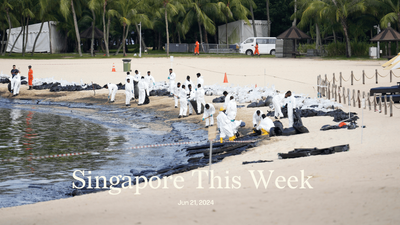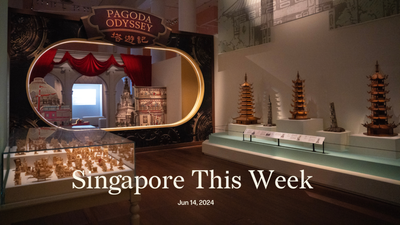Politics: We can’t protect you all
“Sex is different from gender,” said Lawrence Wong, Singapore’s deputy prime minister, confirming that the upcoming workplace anti-discrimination law won’t cover sexual orientation and gender identity. He reiterated the government’s desire, first articulated in 2021 by Lee Hsien Loong, the prime minister, to ensure that employment practices are fair and don’t discriminate based on sex, race, religion and age. Clearly, the new law will leave LGBTQ (lesbian, gay, bisexual, transgender, queer) people vulnerable to existing and future workplace discrimination. In 1973, Singapore was the first country in Asia to legalise sex reassignment surgery, allowing its citizens to change their sex on government documents. In 1996, it legalised marriage for transgender people. But the state’s progressive attitude towards transgender people falls short of being fully inclusive. Lee might have called gay and lesbian people “valued members of society”, but these words ring hollow when the LGBTQ community won’t have the same legal rights and recourse as their heterosexual peers to redress workplace discrimination. (In an earlier Jom essay on the law, Daryl Yang pointed out that other groups, such as people living with HIV, would also likely be excluded.) Wong, speaking at the annual Singapore Perspectives Conference, said that the areas of coverage will be up for debate in Parliament when the Bill is tabled. It would be encouraging if some parliamentarians from the different parties argued for a more comprehensive law. But given their generally limp performance when repealing S377A last year, we shouldn’t count on it.
Society: Pray the violence away?
While faith can be a source of healing for survivors, it can just as likely be manipulated and weaponised by perpetrators of abuse, including physical, psychological and emotional. It’s important for Singaporeans, of whom some 80 percent have a religious affiliation, to understand this duality, and to watch out for their fellow adherents. These were some of the points made at an interfaith panel against domestic violence in the family. Sun Xueling, minister of state for social and family development, encouraged religious organisations to provide a safe space for victims and survivors of family violence. She said that the government’s Child and Adult Protective Services received 6,400 inquiries in 2020, up 40 percent from 2017. Among the topics of discussion was the fact that victims often rely on the concept of forgiveness to justify their continued abuse. According to the Safe Havens Interfaith Partnership Against Domestic Violence, other common methods of religious abuse include asserting scripture-based authority, controlling sexuality and reproduction, restricting access to healthcare, using community coercion and victim blaming. It is progress that Singapore is acknowledging such tensions. To those suffering, any community tie is often better than none. However, when the concept of the nuclear family remains a bedrock of society, to the point that divorce is frowned upon, one wonders how free these organisations will be to truly protect the most vulnerable.
Society: Glitch in the social mobility “escalator”
Singaporean youth are less likely to experience a rise in social status compared to the older generation, according to a study conducted by the Institute of Policy Studies. Of those surveyed, 52 percent between the ages of 21 and 34 indicated that they have experienced upward social mobility since childhood compared to 70 percent of those 55 and older. In 2018, Tharman Shanmugaratnam, senior minister, described social mobility as “the heart and soul” of our society, emphasising the importance of keeping the “escalator” of social mobility moving. This faulty step in our “escalator” could very well be explained by time—older respondents simply have had more time to accumulate wealth. Or, perhaps, it's in line with global socio-economic forces: signs in many countries suggest that today’s millennials and Gen Zs may be the first generations to be worse off than their parents. Still, given our poor performance in fair wage distribution and social protection—Singapore ranked 51st and 61st of 82 countries in each respective category in the World Economic Forum’s 2020 Global Social Mobility Report—one might wonder to what extent this 18 percent gap can be explained by systemic local factors. Instead of asking young Singaporeans to “think out of the box”, “market themselves [through] social media” and be “willing to take on and seek opportunities”, perhaps the escalator needs tweaking.
Society: #LetWorkersSit
In recent years, office workers who sit too much have switched to standing tables and purchased treadmills. But however much we groan about stiff backs and necks, we should count ourselves lucky. Others have the opposite problem: no chance to sit. Workers Make Possible, a civil society group founded for building worker power in Singapore, started a petition urging Watsons to let its retail workers sit. These workers are on their feet for eight to 12 hours at a time, resulting in blisters, chronic pain, swollen feet and other health issues. The petition makes four demands of Watsons: institute a right-to-sit policy across all outlets; provide appropriate chairs; build in 15-minute seated breaks for every 1.5 hours of work; and provide more chairs in the rest area. You can sign the petition here to let Watsons know that you stand in solidarity with its retail workers.
Arts: NotActually
Is BooksActually now a closed chapter in Singapore’s literary history? According to Goody Feed, an online tabloid, the independent bookstore has terminated its Google business listing and its former unit at Upper Weld Road is now listed on PropertyGuru. Books were also seen discarded outside the store last month. Owner Kenny Leck was due to transfer ownership to his employees after a 2021 exposé revealed that BooksActually had been running on free labour and employee abuse. (Note: this article was written by Charmaine Poh, Jom co-founder.) The bookstore was once the epicentre of the local literary scene, hosting readings and publishing up-and-coming writers. There was a public backlash, however, when readers and writers alike discovered that its good work had been done at the expense of employee well-being.
Arts: United colours of Peranakan
The Peranakan museum is reopening in mid-February after shutting its doors in 2019 for renovations. The refurbished building houses new permanent galleries organised around the themes “Origins”, “Home” and “Style”. During its closure, the museum worked closely with various Peranakan communities to collect new interviews and artefacts as well as document customs and practices. The explorations of these living cultures—including that of Arab Peranakans, Chinese Peranakans, Chitty Melakans, and Jawi Peranakans—will be rooted within the context of greater Nusantara. The museum will also present original commissions inspired by Peranakan culture. So far, they have announced one with artist Sam Lo, who is also the art director of this year’s Chingay parade.
Internet Culture: Anything for mummy’s Ferrari
Does a child have a right to privacy in the digital age? The question has resurfaced in Singapore after a blogger made a video in which she’s consoling her crying daughter who’s visibly disappointed with her O-Level grades. Commenters have accused Sarah Cheng-De Winne of exploiting a vulnerable moment in her child’s life for content. The blogger is known on TikTok for videos of her family life, often posting multiple times a day about their meals, conversations, and errands. Not every viral video deserves a news cycle. “Mummy bloggers”, including Cheng-De Winne, often make posts about their children as soon as they’re born, revealing personal details about their child’s life using their real names and faces. (Not just them surely: some 80 percent of children in the developed West have a digital footprint before they turn two, says this UN report, with some starting before birth, when their in-utero images are shared.) The child in the O-Level video may be old enough to consent, but many influencers’ children grow up without being given a choice about whether or not they want their lives and likenesses consumed by thousands of strangers online. As they grow up and their digital footprints become an increasingly important part of their adult lives, these children will have to decide whether to untangle their online identities from the ones their parents have crafted for them.
History weekly by Faris Joraimi
With Pongal recently concluded and the Lunar New Year arriving next week, it’s good to recall what makes celebrations in our part of the world unique. The festive snacks many Chinese Singaporeans now associate with the Lunar New Year are very Malayan. Take pineapple tarts, kueh bangkit or suji cookies. It’s hard to imagine any Sinophone community outside the Malay world knowing these, let alone serving them to guests. Pineapple tarts, or kueh tart nenas in Malay and kueh nastar in Indonesian (from Dutch ‘ananas taart’), are also savoured at Hari Raya; Eurasians make them for Christmas. The fruit itself, native to South America, has been cultivated in Malaya since the 17th century. Alexander Hamilton, a visiting English trader, considered “the Malacca pineapple” the best in the world. Bugis planters dominated commercial pineapple-growing in colonial Singapore until the early-20th century, when canned pineapple tycoons like Lim Nee Soon elbowed them out. Whence the tart? Food historian Khir Johari describes it best: “The technique for making the shortcrust pastry is an adaptation from the English, but the pineapple conserve is definitively more local. Isaac Henry Burkill, director of gardens for the Straits Settlements, noted that the ‘Malays make pineapple ‘manisan’ (a conserve) with sugar only’, applying the same technique they applied to create durian lempok and jackfruit conserve. It is the pairing of the pineapple jam with the fragile, crumbly pâte brisée that is the marriage made in heaven, now omnipresent in all cultural celebrations in the Straits.” It also helps that in Hokkien the word for pineapple is a homonym for “prosperity on its way”. Abundance with every bite indeed, and lots of history too. Don’t let the calorie-counters stand in your way.
Business: Show us your money
Are top executives in Singapore's publicly listed companies being “appropriately incentivised”? This is the question at the heart of new regulations set to take effect in 2024. They would require listed companies to disclose the compensation of CEOs and individual directors in their annual reports. They also set a nine-year limit on the tenure of independent directors. These changes, recommended by the Corporate Governance Advisory Committee, aim to give investors a better understanding of how executive pay is determined. The regulations are set to take effect for financial years ending on or after December 31st, 2024. The Monetary Authority of Singapore (MAS) and the Singapore Exchange Regulation (SGX RegCo) have stated that the new regulations aim to better allow investors to know if top executives are “appropriately incentivised”. Mr Lim Tuang Lee, MAS’ assistant managing director for capital markets, said: “High standards of corporate governance, characterised by strong accountability and transparency, are critical in upholding investor confidence in our capital markets.” While companies have long argued that secrecy about executive pay boosts their competitive and bargaining positions, both institutional and retail investors have consistently called for full disclosure. The new regulations, which also include mandatory climate-related disclosures as well as those around board diversity, pave the way for closing the pay gap and creating more equitable salaries across the corporate chain.
Tech: Atas Carousell
Carousell is targeting the booming second-hand luxury market with its latest strategic appointment of Gijs Verheijke, the former CEO and founder of Singapore-based fashion platform Ox Street, as its head of luxury (Carousell acquired Ox Street in 2021.) Ox Street, an online marketplace for high-end sneakers, and Carousell stated that it would leverage Ox Street's experience with fashion and luxury goods to help enhance its own offerings in these areas. In a LinkedIn Post, Verheijke said that he plans to help Carousell enhance trust around authenticity, given that “billions of dollars in luxury goods are transacted” on the platform each year. One of the major challenges in the luxury industry is authentication. The OECD has reported that the international trade in counterfeit and pirated products has increased from US$250bn (S$329bn) in 2008 to US$1tn (S$1.3tn) in 2016. Still, the global second-hand luxury market is rapidly growing with a value of US$32.6bn (S$42.9bn) in 2021. It is projected to reach US$51.7bnB (S$68.1bn) by 2026, drawing the attention of investors buoyed by the success of luxury resale platform Vestiaire Collective. Demand for second-hand luxury goods has been attributed to customer concerns over sustainability and affordability. All this comes at a time when Carousell needs a new growth driver to boost its performance in this current downturn. When times are bad, go lux.
If you enjoy Jom’s work, do get a paid subscription today to support independent journalism in Singapore.







